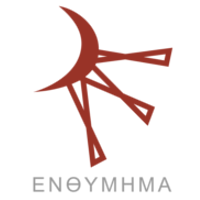Quasimodo and the Spiritualization of Cruelty, Saba’s Uncanny Shortcuts, Montale’s Grotesque Imaginary: Complex Genealogies of Italian Poetry on the Jewish Genocide
DOI:
https://doi.org/10.13130/2037-2426/10792Parole chiave:
Shoah, Saba, Quasimodo, Spiritualization of Cruelty, UncannyAbstract
The memory of anti-Jewish persecution intersected the work of prominent authors in Italian twentieth century poetry, often following oblique and unexpected trajectories that touch authors such as Montale, Sereni, Fortini, Pasolini, Saba, Levi, Quasimodo. This essay intends to probe a genealogical juncture in this poetic history, bringing into purview a series of poliperspectival models of poetic writing about the Shoah elaborated by Salvatore Quasimodo, Umberto Saba and Eugenio Montale in the early postwar years. If Quasimodo’s poesia civilepaved the way to a literary monumentalization of memory, such poetic configuration ultimately might be seen to hinge on what Friedrich Nietzsche critically termed a “spiritualization of cruelty.” Thus it was progressively identified as a potential anti-model for Italian poetry dealing with the memory of the persecution – as a reading of Montale’s treatment of this theme reveals. On the other hand, Saba condesned his afterthoughts about the “cannibalism” of racial persecution in Scorciatoie e raccontini(Shortcuts and Very Short Stories): a book of poèmes en prosethat possesses “the accent of poetry and the rigor of aphorism.” These uncanny and ironical shortcuts raise corrosive doubts about the value attached to a purported monumental memory of the Shoah and bring to attention the existence of genealogical complexity in Italian poetic writing about the Jewish genocide that calls for adequate critical recognition.Downloads
Riferimenti bibliografici
Adorno, Theodor Wiesengrund. Negativ Dialektik. Surkhamp, 1966.
---. Prismen. Kulturkritik und Geselleschaft. 1955. Deutscher Taschenbuch Verlag, 1963.
Anders, Gunther. Die Antiquiertheit des Menschen. Band II: Über die Zerstörung des Lebens im Zeitalter der dritten industriellen Revolution. Beck, 1980.
Baldacci, Luigi. “Introduzione”. Tutte le poesie, by Carlo Betocchi. Mondadori, 1984.
Bassani, Giorgio. Cinque storie ferraresi. Einaudi, 1956.
Belpoliti, Marco. Primo Levi di fronte e di profilo. Guanda, 2015.
Bersani, Leo. The Culture of Redemption. Harvard UP, 1990.
Booth, Wayne. A Rhetoric of Irony. Chicago UP, 1974.
Celan, Paul. “Spricht auch du.” Von Schwelle zu Schwelle, Deutsche Verlags-Anstalt, 1955.
Debenedetti, Giacomo. Intermezzo. Il Saggiatore, 1973.
---. Prefazione. Saba, Umberto, Il Canzoniere.
---. Saggi. Mondadori, 1999.
Deleuze, Gilles and Felix Guattari. Kafka: pour une littérature mineure. Éditions de Minuit, 1975.
Focardi, Filippo. Il bravo italiano e il cattivo tedesco: la rimozione delle colpe della seconda guerra mondiale. Laterza, 2013.
---. “Alle origini di una grande rimozione. La questione dell’antisemitismo fascista nell’Italia dell’immediato dopoguerra.” Horizonte. Italianistische Zeitschrift für Kulturwissenschaft und Gegenwartsliteratur, vol. 4, 1999, pp. 135-70.
Focardi, Filippo, and Lutz Klinkhammer. “The question of Fascist Italy’s war crimes: the construction of a self-acquitting myth (1943 – 1948).” Journal of Modern Italian Studies, vol. 9, no. 3, 2004, pp. 330-48.
Frandini, Paola. Il poeta, il cane, la gallina. Scorciatoie e raccontini di Umberto Saba tra umorismo ebraico e Shoah. Le Lettere, 2011.
Freud, Sigmund. “The Uncanny.” Complete Psychological Works of Sigmund Freud, vol. 17, An Infantile Neurosis and Other Works, Vintage, 2001, pp. 217-56.
Frye, Northrop. The Great Code. The Bible and Literature. Toronto UP, 2006.
Gentile, Emilio. The Sacralization of Politics in Fascist Italy. Harvard UP, 1996.
Goebel, Eckart. Beyond Discontent. “Sublimation” from Goethe to Lacan. Continuum, 2012.
Gordon, Robert. The Holocaust in Italian Culture, 1944-2010. Stanford UP, 2012.
---. “ ‘Per mia fortuna…’: Irony and Ethics in Primo Levi’s Writing.” The Modern Language Review, vol. 92, no. 2, 1997, pp. 337-47.
Hertz, Michael. Eugenio Montale, the Fascist Storm and the Jewish Sunflower. Toronto UP, 2013.
Hoffmann, Klaus. “Poetry After Auschwitz – Adorno’s Dictum.” German Life and Letters, vol. 58, no. 2, 2005, pp. 182-94.
Ialongo, Ernest. Filippo Tommaso Marinetti: The Artist and His Politics. Farleigh Dickinson UP, 2015.
Kroba, Lucienne. “In The Aftermath: Modalities of Memory in Il Romanzo di Ferrara”. Poscritto a Giorgio Bassani. Saggi in memoria del decimo anniversario della morte, edited by Roberta Antognini and Rodica Diaconescu Blumenfeld, LED, 2012, pp. 207-34.
LaCapra, Dominick. “Trauma, Absence, Loss.” Critical Inquiry, vol. 25, no. 4, Summer 1999, pp. 696-727.
Levi, Primo. L’asimmetria e la vita. Einaudi, 2002.
---. Opere. Einaudi, 1997.
---. Ad ora incerta. Garzanti, 1984.
---. L’osteria di Brema. Scheiwiller, 1975.
Mattioda, Enrico. “Usi e senso della poesia in Primo Levi e Jorge Semprun.” Voci dal sottosuolo. Poesia e Lager, edited by Alberto Cavalion, FrancoAngeli, 2003, pp. 117-32.
Molinaro, Joseph. “Quasimodo and the theme of willow trees.” Romance Notes, vol. 18, no. 1, 1977, pp. 32-37.
Moudarres, Laura. “Sacrament of Testimony: Agamben and Biblical Language in Primo Levi’s Se questo è un uomo.” The Italianist, vol. 34, no. 1, 2014, pp. 88-102.
Nietzsche, Freidrich. Beyond Good and Evil. Prelude to a Philosophy of the Future. Cambridge UP, 2002.
Quasimodo, Salvatore. Giorno dopo giorno. Mondadori, 1947.
---. Poesie e discorsi sulla poesia. Mondadori, 2001.
Rondini, Andrea, “Da Umberto Saba a Primo Levi.” Rivista di letteratura italiana, vol. 26, nos. 2-3, 2008, pp. 45-53.
Saba, Umberto. Il Canzoniere. Einaudi, 1978.
---. Lettere sulla psicoanalisi. Carteggio con Joachim Flescher 1946-1949. SE, 1991.
---. Scorciatoie e raccontini. 1946. Einaudi, 2011.
Schwarz, Guri. “On Myth-Making and Nation Building: The Genesis of the Myth of the Good Italian, 1943-1947.” Telos, vol. 164, 2013, pp. 11-43.
Segre, Cesare. “I romanzi e le poesie.” Primo Levi. Un’antologia della critica, edited by Ernesto Ferrero, Einaudi, 1997, pp. 91-116.
Sodi, Risa. Narrative and Imperative: The First Fifty Years of Italian Holocaust Writing (1944-1994). Peter Lang, 2007.
Spitzer, Leo. Critica stilistica e semantica storica. Laterza, 1966.
Dowloads
Pubblicato
Come citare
Fascicolo
Sezione
Licenza

Except where otherwise noted, the content of this site is licensed under a Creative Commons Attribution 4.0 Unported License.
Accettato 2019-04-07
Pubblicato 2019-07-18





